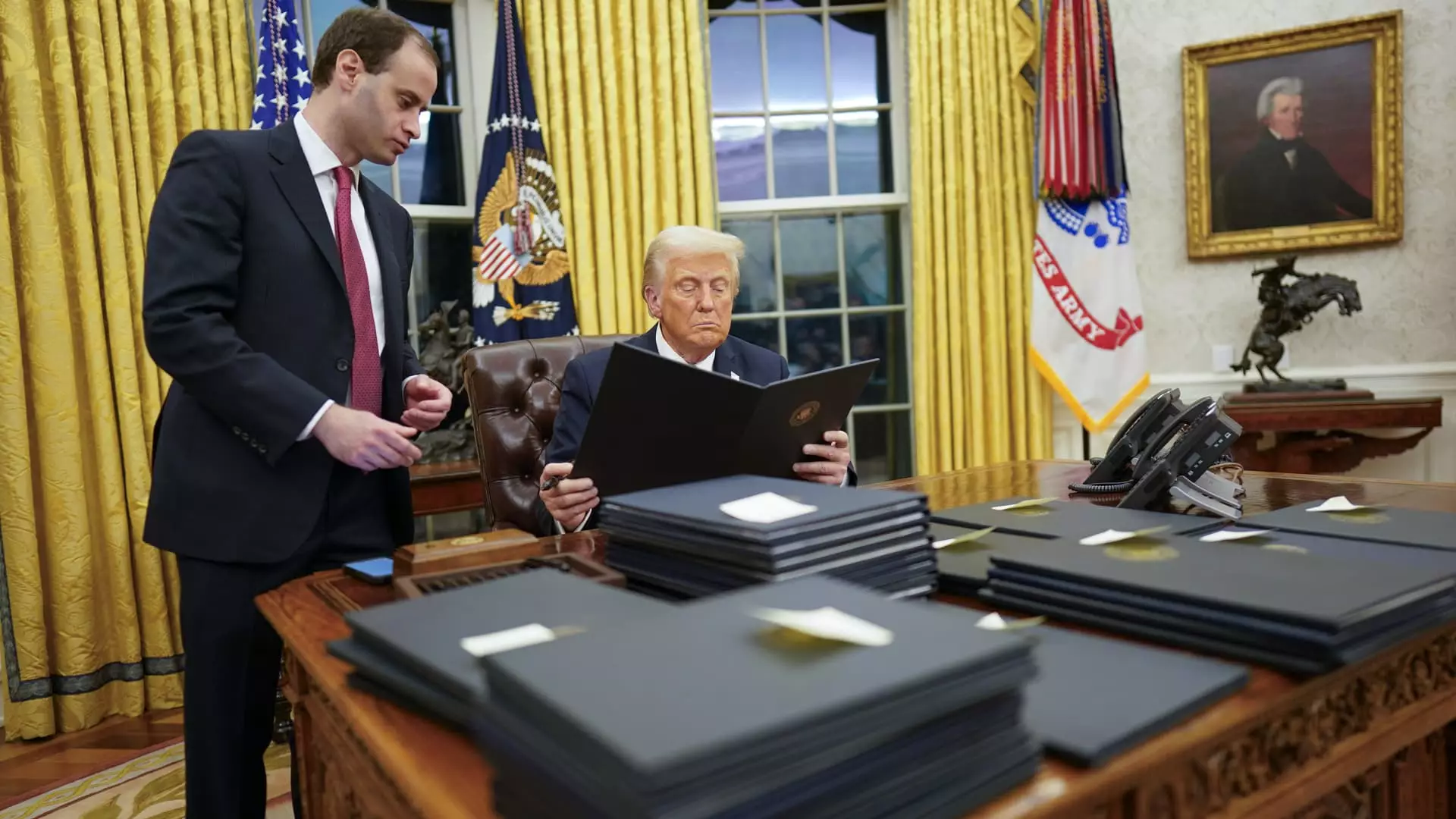The inauguration of Donald Trump in January 2017 marked a significant shift in the U.S. energy landscape. Within hours of taking office, the new president launched a controversial and aggressive agenda aimed at promoting fossil fuel production while simultaneously dismantling the climate policies of his predecessor, Joe Biden. This article delves into the implications of Trump’s energy policy, which has not only stirred debates among environmentalists but also raised questions about the future of energy in America.
Trump’s actions began with a declaration of a national energy emergency, a move that framed energy supply issues as national security risks. He asserted that the U.S. faced an inadequate energy supply and an unreliable grid. In an age where electricity demand is anticipated to escalate due to the rise of data centers and domestic manufacturing expansion, Trump’s rhetoric suggested a looming crisis. This emergency declaration provided a rationale for his push to harness and expedite fossil fuel projects, raising concerns among environmentalists and critics alike.
The strategy to boost fossil fuel production operates under the premise that the U.S. must solidify its position as a dominant player in the global energy market. However, this approach ignores the pressing scientific consensus on climate change and the urgency for a transition to renewable energy sources. While fossil fuel executives such as those from ExxonMobil and Chevron maintain that production levels are driven more by market forces than political whims, Trump’s pro-fossil fuel stance marks a disparaging shift from the previous administration’s commitments to cleaner energy.
While Trump’s ambition could resonate with segments of the electorate and sectors of the energy industry, the practical implications of his orders may face significant legal and operational barriers. Many environmental advocates have vowed to challenge Trump’s aggressive policies in court, harkening back to previous instances where similar efforts were blocked by judicial rulings. This friction underscores the perpetual tension between economic interests in fossil fuels and the imperative of protecting environmental integrity.
Furthermore, even with Trump’s executive orders aimed at facilitating drilling and energy infrastructure projects, experts predict that the industry’s response may not reflect the same urgency as the administration’s rhetoric. The market-driven dynamics surrounding oil and gas suggest that production levels may remain stable, regardless of political incentives. This phenomenon raises questions about the effectiveness of executive action versus market realities in shaping energy policy.
One of the cornerstone decisions made by Trump was the initiation of the U.S. withdrawal from the Paris climate agreement, an international treaty designed to curb greenhouse gas emissions and limit global temperature rise. This move garnered both applause and ire, cementing Trump’s commitment to an energy policy focused on fossil fuels rather than climate sustainability. While it might signal an end to collaborative international efforts around climate change, it simultaneously underlines a significant ideological division within U.S. governance regarding environmental responsibility.
Trump’s administrative rollback of stringent regulations set by Biden, including measures to promote electric vehicles and reduce vehicle emissions, echoes a broader ideological battle within the country. The abandonment of these ambitious environmental goals raises critical concerns about America’s long-term strategy in combating climate change and transitioning to sustainable energy.
In a further bid to enhance domestic fossil fuel resources, Trump’s administration prioritized initiatives aimed at maximizing production in Alaska, emphasizing the development of liquefied natural gas (LNG) projects and expediting permits for new energy endeavors. This emphasis reflects a tangible drilling-down into resource extraction, with far-reaching implications for ecological balance and indigenous rights. As regulatory barriers facing fossil fuel development are dismantled, the exposure of natural habitats to drilling and mining operations presents daunting environmental challenges.
The move to revoke bans on coastal and offshore drilling is yet another contentious point, generating strong opposition from environmental groups advocating for the protection of marine ecosystems. Past court decisions indicate that Trump’s authority to bypass these restrictions may be questionable, highlighting the contentious intersection of political ambition and legal authority in reshaping U.S. energy policies.
Donald Trump’s aggressive reshaping of energy policy presents a complex landscape where the tension between fossil fuel development and climate responsibility is palpable. His initial actions in office may have been politically motivated, but the long-term implications of such decisions are still unfolding. As the U.S. grapples with its energy future amidst growing environmental challenges, the dichotomy created by Trump’s policies may serve as a flashpoint for future administrations aiming to balance energy independence with environmental sustainability. Ultimately, the effectiveness of these policies will depend on the court of public opinion, market reactions, and possibly, legal challenges that could alter the trajectory of U.S. energy production for years to come.


Leave a Reply